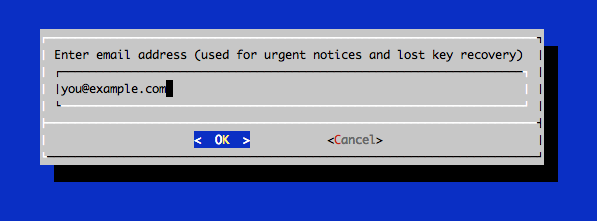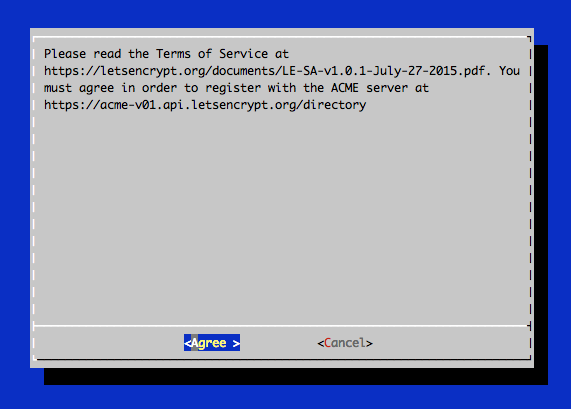Using Let's Encrypt to setup HTTPS
Prerequisites
- You need to have a DNS Multitenant Setup
- Your site should be accessible via a valid domain
- You need root permissions on your server
Note : Let's Encrypt Certificates expire every three months
Using Bench Command
Just run:
sudo -H bench setup lets-encrypt [site-name]
You will be faced with several prompts, respond to them accordingly. This command will also add an entry to the crontab of the root user (this requires elevated permissions), that will attempt to renew the certificate every month.
Custom Domains
You can setup Let's Encrypt for custom domains as well. Just use the --custom-domain option
sudo -H bench setup lets-encrypt [site-name] --custom-domain [custom-domain]
Renew Certificates
To renew certificates manually you can use:
sudo bench renew-lets-encrypt
Manual Method
Download the appropriate Certbot-auto script into /opt
https://certbot.eff.org/
Stop nginx service
$ sudo service nginx stop
Run Certbot
$ ./opt/certbot-auto certonly --standalone
After letsencrypt initializes, you will be prompted for some information. This exact prompts may vary depending on if you've used Let's Encrypt before, but we'll step you through the first time.
At the prompt, enter an email address that will be used for notices and lost key recovery:

Then you must agree to the Let's Encrypt Subscribe Agreement. Select Agree:

Then enter your domain name(s). Note that if you want a single cert to work with multiple domain names (e.g. example.com and www.example.com), be sure to include all of them:

Certificate Files
After obtaining the cert, you will have the following PEM-encoded files:
- cert.pem: Your domain's certificate
- chain.pem: The Let's Encrypt chain certificate
- fullchain.pem: cert.pem and chain.pem combined
- privkey.pem: Your certificate's private key
These certificates are stored under /etc/letsencrypt/live/example.com folder
Configure the certificates for your site(s)
Go to your erpnext sites site_config.json
$ cd frappe-bench/sites/{{site_name}}
Add the following two lines to your site_config.json
"ssl_certificate": "/etc/letsencrypt/live/example.com/fullchain.pem", "ssl_certificate_key": "/etc/letsencrypt/live/example.com/privkey.pem"
Regenerate the nginx configuration
$ bench setup nginx
Restart the nginx server
$ sudo service nginx restart
Auto renewal (experimental)
Login as root or a user with superuser privileges, run crontab -e and enter:
# renew letsencrypt certificates on 1st monday of every month and get an email if it gets executed MAILTO="mail@example.com" 0 0 1-7 * * [ "$(date '+\%a')" = "Mon" ] && sudo service nginx stop && /opt/certbot-auto renew && sudo service nginx start